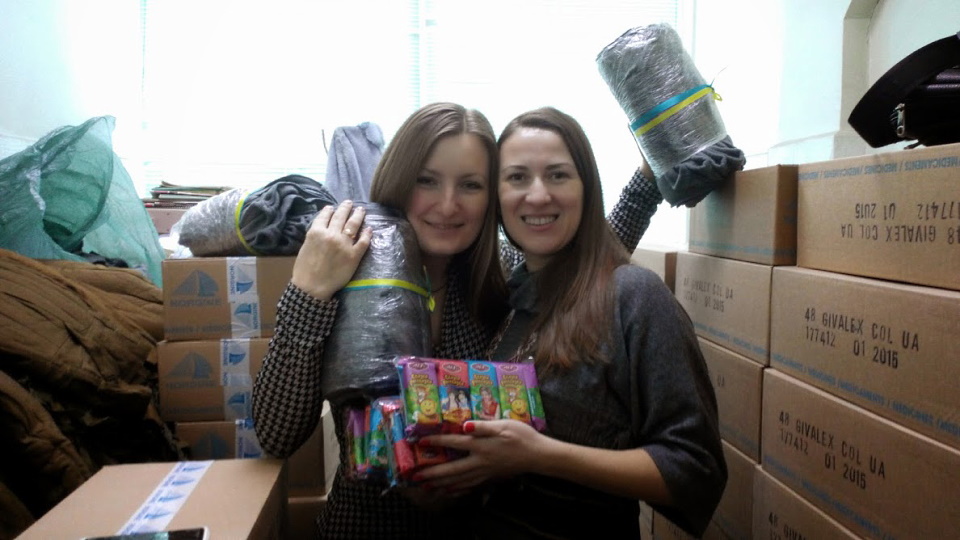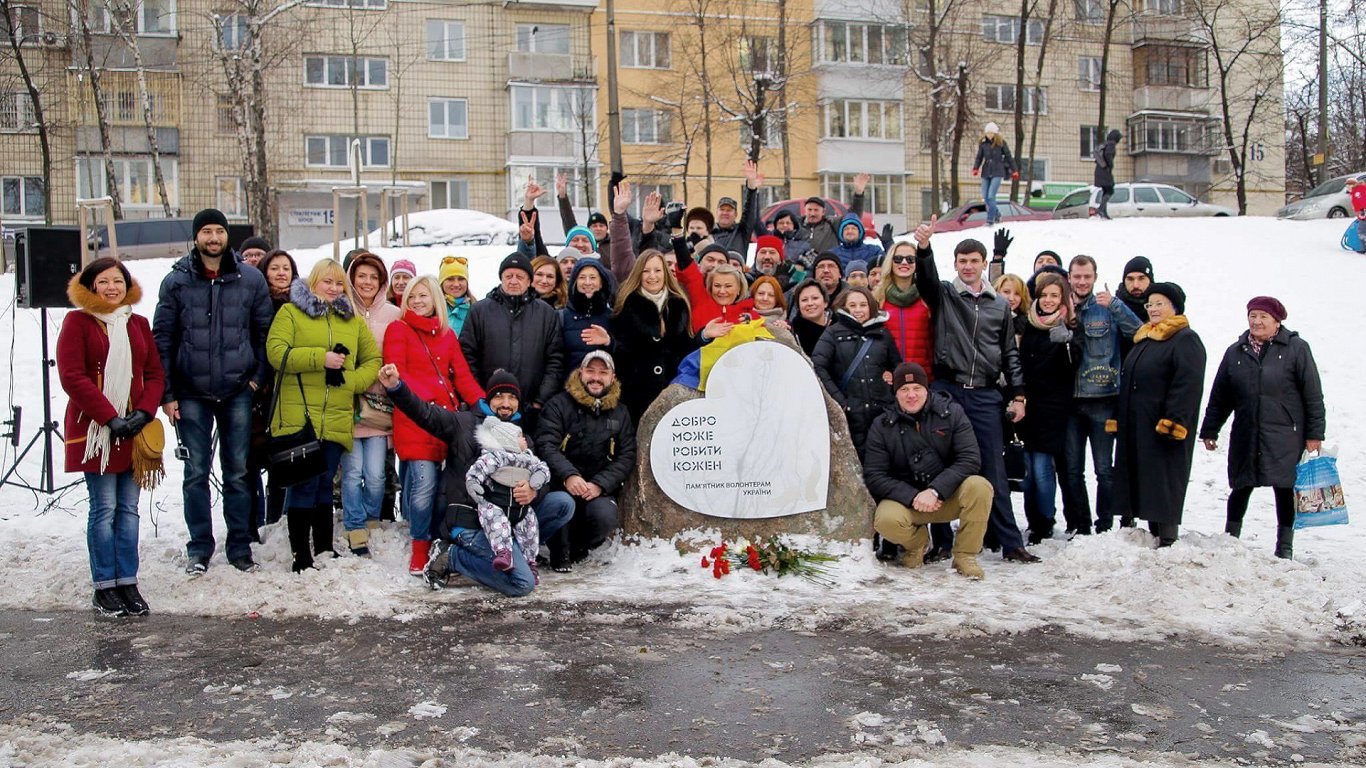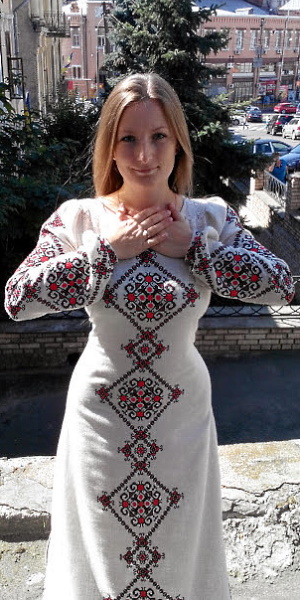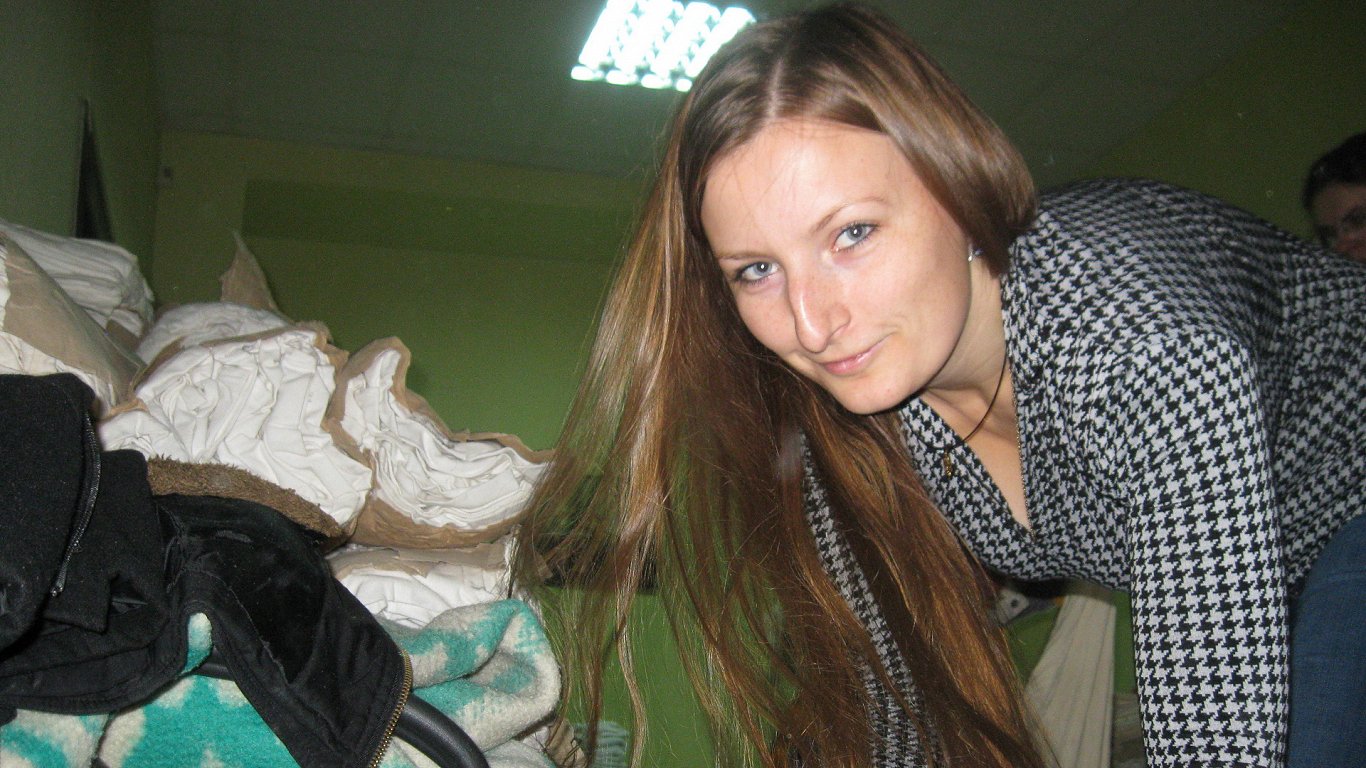Read the article in Ukrainian here.
Read the article in Russian here.
At that time Olena was already a volunteer, but she started this activity in 1999. As a teenager, Olena learned about the voluntary movement and her philosophy found an echo in her soul: in addition to ordinary life, every person is also in able to save the world. Thus, in the family of Olena’s parents, it was obvious to save and support. Olena began helping children with difficult destinies who were addicted to alcohol and drugs, followed by support for orphaned children, regular trips to boarding schools. She has helped the children to learn future professions, apart from the ones they will have in vocational school.
Photo: From the personal archive of Olena Sujetova
“We had teams that were divided between boarding schools and constantly looked after the children. These teams remained, they are working. This idea still works today: don’t give a fish, but give a fishing rod and teach how to manage it,” says Olena.
But then the war began. There was work in hospitals, purchases for the needs of the front. Olena began to seek contacts with the owners of large companies, agreed on a low price, announced a fundraiser for the purchase of the necessary goods. A great team worked, many volunteers are familiar with the password “From Sujetova”.
This is how Olena and her fellow volunteers worked for the tenth year.
A full-scale war was approaching. “I started from December storm all virtual chat rooms and groups in Kiev (and beyond) linked to the location of the air-raid shelters. A lot of people called me a panic vendor, ”says Olena.
However, he continued his work, together with a local deputy he created a list of air-raid shelters in the Holosiyiv district of Kiev. It turned out that many of them had cafes and bars installed at that time.
However, most people in virtual chat rooms had a negative attitude towards Olena’s writing. Later, Olena called to take the children away, but there was no reaction.
Olena took her son to the Vinnytsia region shortly before the war, when the situation on the Eastern front had already worsened. But on February 19, Olena’s mother called from the Kharkiv region: Olena’s 72-year-old grandmother was in urgent need of a heart operation. It was decided that the grandmother would be operated not in Kharkiv, but in Kiev. Olena returned to the capital, where her grandmother was successfully operated on in the Amosov clinic. Olena is infinitely grateful to all doctors for this. This was two days before the full-scale war began.
With four children in one car, with her mother and recently operated grandmother in the other, Olena left Kiev on February 24. She passed through Buca, where the paratroopers had already arrived in the forest by that time, but the enemy planes turned the road before the bombing.
“All this I have understood, known, seen, warned people”, sadly recalls Olena.
After February 24, people started panicking and asked her for addresses of air raid shelters and other important information.
“People want to be deceived. It is easier for them to live this way. Unfortunately, due to human stupidity, the lives of the soldiers and volunteers who save these people are then lost,” says Olena.
His family initially left for the Vinnytsia region. There, Olena immediately started answering various questions online. Later he turned to the coordination of refugees: they urgently needed help, people did not know where to go. Especially people with young children, pregnant women and the elderly needed help. Finding cars was extremely difficult. Many needed food and medicine. Many requests have come from the front.

Photo: From the personal archive of Olena Sujetova
Olena remembers how in the school, in the small village in the Vinnytsia region, where she ended up, the students were weaving camouflage nets for the front. For the first time in her life, Olena began teaching children to weave these nets.
“The children were very diligent, but the school principal was an incredibly strong person and an absolute authority among the children!” she remembers.
Olena had planned to stay in Vinnitsa. However, two weeks after the full-scale war began, her husband insisted that she and their two-year-old son go to Poland, where her husband’s colleagues were already waiting. “My husband was very worried about me, about the child we had been expecting for six long years, he is a long-awaited child,” recalls Olena. Crossing the border was very difficult, because there was a huge line, however they had a car in which it was hot, it was possible to warm up and change the baby.
“We were up from four in the morning until eight in the evening, it was cold outside and all the time we saw people walking past us, even with small children, they couldn’t wait or they didn’t have a car waiting. it passed in front of us, hundreds of people, it was like a horror movie. Someone was crying, someone was just carrying a small child. “
Olena recalls that it was very difficult for many Kharkiv residents to leave due to the shootings, because the logistics were very difficult. Residents of Irpina, Bucha and other towns and villages in the Kiev region, who survived the occupation, left later, sometimes fleeing through the forests. Olena knows many of these people personally and has heard many horror stories about what these people have been through.
“The transportation of these people is also a separate difficult story for both the victims and the volunteers, because not all people were psychologically prepared for what happened on February 24,” admits Olena.
Already in Poland, Olena started looking for wholesale warehouses, manufacturers and independent coordinated deliveries in Ukraine with the foundation “Patriot UA“Support.” We bring and deliver humanitarian aid – food, clothing, medicine – to the entire front line, to the destroyed cities and villages, to the hottest spots. “Thus, Olena Sujetova managed to coordinate the efforts of Ukrainian volunteers and Poles to help Ukraine.
Olena now lives in a small, quaint Polish town near Warsaw. Another direction of her activity is free education for Ukrainians in the specialties of information technology and the English language (currently more than 1500 people who are temporarily out of Ukraine are trained).

Photo: From the personal archive of Olena Sujetova
In the city where Olena Sujetova lives, there are more than 3,000 Ukrainians, but about 200 are involved in active volunteering: “We all help each other and in Ukraine,” says Olena.
Olena had never been to Poland before: “I thought I could communicate in English here, but very few people know English in small towns, so I was often told: speak Ukrainian, we understand you. The second thing that surprised me – in Ukraine I used to live with an active rhythm, but in Europe, especially in Poland, there is a completely different rhythm. Here it is calm, as if we were in a sanatorium. It was difficult to settle in a new country, to volunteer , go through the stress of receiving terrible news from Ukraine, learning new things and at the same time raising myself the two-year-old We Ukrainians do not know what a peaceful life is! But Poland surprises with its composure and peace. .. “
In addition, Olena was also surprised that life in small Polish towns is organized in such a way that people can live in it to the fullest, there is absolutely all the necessary infrastructure. In general, the attitude towards Ukrainians in Poland is mostly very favorable: “All the Polish people have joined together to help Ukraine. While I am here, I have received many gifts, sometimes the shops have refused to take money because I’m Ukrainian. I’m used to helping pregnant women, sometimes when I got help or a gift, I started crying, it was so unusual. “
Olena Sujetova talks about her volunteer work in Poland: “As soon as she arrived in Poland, Olena Pianovska, our Ukrainian who lives here, wrote to me and offered her help”.
The local young volunteers immediately helped Olena with clothes for herself and her son, as she had left with only the bare minimum of necessary things. That was the start of their joint business.

The girls collect the necessary in Poland, then the humanitarian aid is sent to Ukraine, to the warehouse of the “Patriot UA” foundation, and from there to the south, north and east, to the people who need help. These are clothes, food, medicine, cars, building materials for people who have lost their homes and things for the front. Especially now, when winter approaches, it is important to repair homes in war-torn villages to provide soldiers with warm clothing.
For example, Olena is currently looking for car transporters to bring several hundred cars (these are cars, jeeps, minibuses) from Switzerland to the first line, and is also looking for donors who pay to take them. And an important part of the volunteer work is also helping the families of the injured and the dead.
A long-known saying among the volunteers is: “In any incomprehensible situation, turn to Sujetova”.
Since 2014, but now much less often, Olena hears the following question: “Why do you volunteer?” The question sounds very funny: “But what salary do you get as a volunteer?” Sometimes people also ask: “Do you really believe that thanks to you something will change?”
In the past many people were away from the war, now the situation has changed, people have begun to understand the importance of volunteering. What disturbs Olena most is the loss of faith in the volunteer movement that she sometimes encounters. However, Olena receives the support of most of the people.
In 2016, in Kiev, on Strategic Highway 15, Olena created Volunteer Square and installed a memorial to all Ukrainian volunteers. It is a mirror heart with the words “Everyone can do good”. Each person who comes to the monument can see himself.
Olena dreams of returning to Ukraine, but because of the child she is currently abroad: it will not be possible to explain to the small and active child, for example, that you should not go to the forest because there are mined areas there. “Unfortunately it is very difficult, because I saw my mother and my grandmother last time in March and my father last November. I am in the Kharkiv region. The father returned to the farm, the sowing began, the bees had to be healed, the parents stayed there despite the roar of the war, “says Olena.
“I wish there was a victory, we could meet and hug each other. It sounds like a mantra, like a prayer for all of us. We miss us very much.”
What does Ukraine mean for Olena?
“First of all, it’s my home, it’s a country that has the best people in the world. Secondly, it’s the values my ancestors gave me. It’s a special soul song.”
Olena dreams of seeing Ukraine as a legal and completely independent country, where intelligent and hardworking people will have a good life.
“We are indeed a very developed and very rich country. It remains to make sure that the country has wise leadership, but people feel the power of the law,” says Olena.


